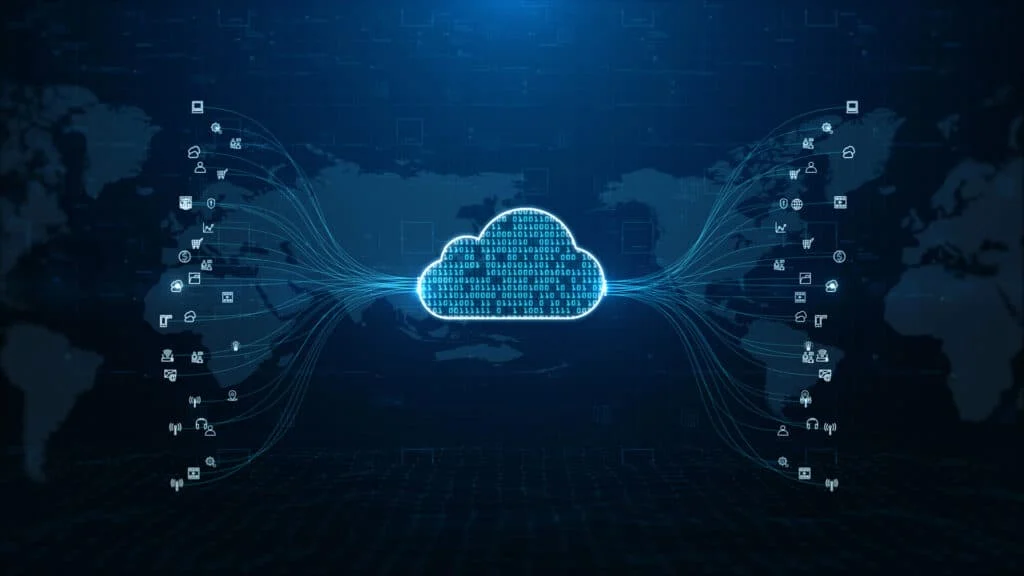The News: Vodafone and Microsoft announced a 10-year strategic partnership that combines their respective portfolio capabilities to offer scaled digital platforms to more than 300 million businesses, public sector organizations, and consumers across Europe and Africa. Read the full press release on the Vodafone website.
Vodafone and Microsoft Find Decade of Bliss in GenAI Alliance
Analyst Take: Vodafone and Microsoft formed a 10-year strategic alliance with the topmost objectives of transforming Vodafone’s customer experience using Microsoft’s generative AI acumen, hyperscale Vodafone’s managed IoT connectivity platform, develop new digital and financial services for businesses—especially small and midsize enterprises (SMEs) across Europe and Africa—and overhaul Vodafone’s global data center cloud strategy.
Vodafone will invest $1.5 billion over the next 10 years in cloud and customer-focused AI services developed in concurrence with Microsoft. Moreover, Microsoft will use Vodafone’s fixed and mobile connectivity services and intends to invest in Vodafone’s managed IoT connectivity platform, which will become a separate, standalone business by April 2024. The new company seeks to attract new partners and customers, driving growth in applications and expanding the platform to connect more devices, vehicles, and machines.
Both partners identified five key areas of collaboration consisting of generative AI, scaling IoT, Africa digital acceleration, enterprise growth, and cloud transformation. For generative AI specifically, both companies will apply the capabilities of Microsoft Azure OpenAI toward the goal of delivering real-time, proactive, and hyper-personalized experiences across all Vodafone customer touchpoints, including its digital assistant TOBi (currently available in 13 countries).
By infusing TOBi with augmented AI capabilities, Vodafone looks to uplift the customer experience through a more intuitive and user-friendly digital assistance technology. The dynamic assimilation of AI can enable TOBi to handle queries with improved accuracy, learn from interactions to provide more personalized responses over time, and offer solutions in real time, bolstering the entire customer experience.
For scaling IoT, Microsoft intends to invest in Vodafone’s new, standalone global IoT-managed connectivity platform, which connects 175 million devices and platforms globally. Vodafone also plans to become part of the Azure ecosystem making the IoT platform available to a vast developer and third-party community using open APIs.
Alongside Vodafone’s IoT connectivity platform, I view the Microsoft Azure IoT solution as already being at the forefront of delivering the Azure cloud microservices and Azure IoT Edge modules that are key to advancing cloud capabilities across IoT environments such as industrial and manufacturing shop settings. This includes broadening support for the OPC UA across Azure Cloud and enabling customers to discover OPC UA-enabled servers and registering them in Azure IoT Hub across their industrial IoT (IIoT) implementations. As a result, operations specialists can subscribe and rapidly administer events using alerts and alarms from anywhere.
From my view, Vodafone and Microsoft can further strengthen their overall IoT proposition by further sharpening the portfolio relationship between the new Vodafone IoT unit and Microsoft’s existing Azure IoT solution in fulfilling a broader range of customer and ecosystem IoT demands.
Intensifying African digital acceleration is a smart move as the African market has proven a font of innovation in areas such as mobile payments and mobile financial services as many African economies rely heavily on mobile services and applications. Microsoft looks to further scale M-Pesa, Africa’s largest financial tech platform, by housing it on Azure and catalyzing the launch of new cloud-native apps. The goal is to boost digital literacy, augment digital skills, and broaden digital service offerings to SMEs throughout African society.
The expanded alliance further highlights Azure’s credentials across the telco space with Vodafone committed to modernizing its data centers on the Azure platform. This move enables Vodafone to accelerate replacing its own data centers with virtual ones distributed throughout Europe, streamlining the operational costs of its IT estate and boosting the fulfillment of its sustainable business objectives. Moreover, Vodafone becomes better positioned to address the 24 million strong SME market opportunity across Europe.
Vodafone reinforces its strategic multi-cloud approach as the new Azure generative AI deal raises Azure’s profile alongside Vodafone’s ongoing relationships with Amazon Web Services (AWS), Oracle Cloud Infrastructure (OCI), and Google Cloud. Akin to its top-tier mobile operator counterparts, Vodafone places top priority in having flexibility in its overall cloud journey, avoiding lock-in by relying solely on a single hyperscaler as well as avoiding shifting its vital telco workloads onto public cloud environments. In contrast, IT workloads are ongoing candidates for workload transitions.
Key Takeaway: Vodafone and Microsoft Gain Generative AI, Cloud, and Digital Service Bliss
Overall, I anticipate that Vodafone and Microsoft will broaden their channel influence across the digital ecosystems of Europe and Africa, especially across the opportunity-rich SME realm by using generative AI and hybrid cloud flexibility to uplift the customer experience. Now the partnership can demonstrate the full ecosystem benefits that are emerging from tighter collaboration between telcos and hyperscalers.
Disclosure: The Futurum Group is a research and advisory firm that engages or has engaged in research, analysis, and advisory services with many technology companies, including those mentioned in this article. The author does not hold any equity positions with any company mentioned in this article.
Analysis and opinions expressed herein are specific to the analyst individually and data and other information that might have been provided for validation, not those of The Futurum Group as a whole.
Other Insights from The Futurum Group:
Vodafone, Cirrus360, and Intel: Let’s Speak RDSL for Open RAN
5G Factor VRN: Vodafone 5G is Testing GenAI Waters
5G Factor Video Research Note: Azure for Operators: Build 5G Modern Connected Apps at the Edge
Author Information
Ron is an experienced, customer-focused research expert and analyst, with over 20 years of experience in the digital and IT transformation markets, working with businesses to drive consistent revenue and sales growth.
Ron holds a Master of Arts in Public Policy from University of Nevada — Las Vegas and a Bachelor of Arts in political science/government from William and Mary.







